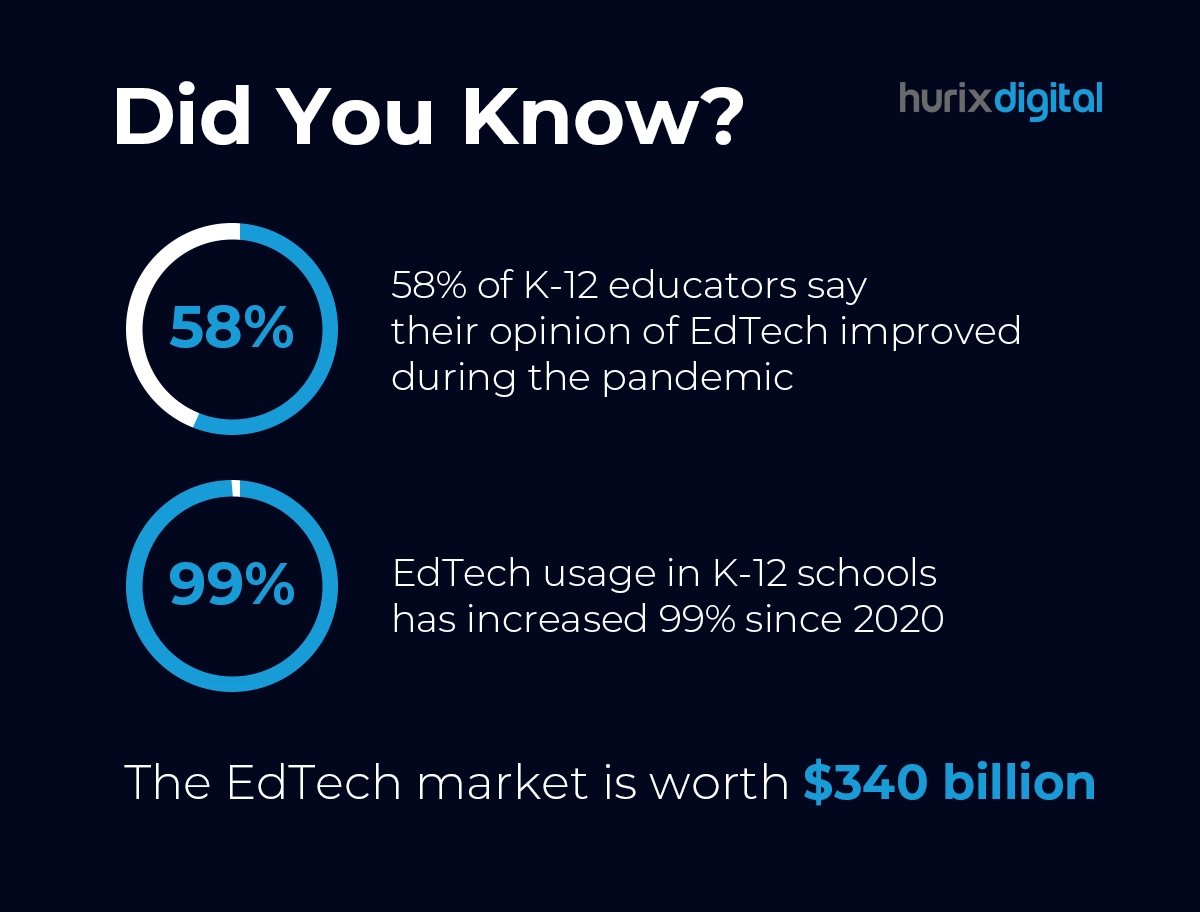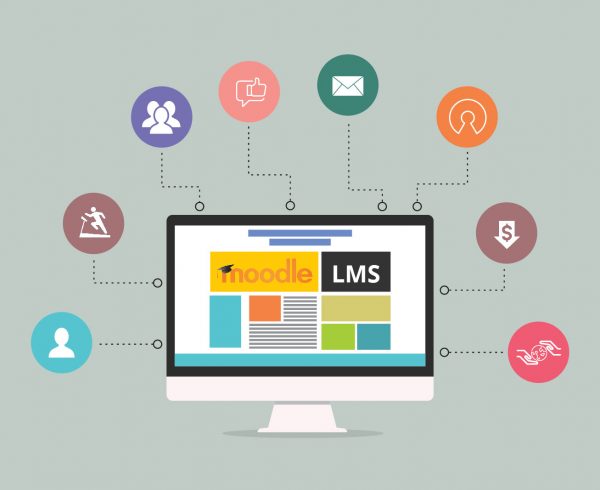Owing to the COVID-induced boom, the edtech space continues to attract increased private equity and venture capital investments. In 2020 alone, the K-12 sector garnered $35.9 billion from investors, according to The Learning Council (source).
The spending was utilized in providing remote-learning resources to students and updating classroom technology, including the software and hardware systems. This inadvertently led to the rise and proliferation of education technology company.
But how do you weed out the education software companies that are just part of the noise and pick the ones that really stand out? Read this article to skip the painstaking research and get yourself familiar with the 7 best k12 education software and edtech companies.

What are the 7 best Education Tech (EdTech) Companies for K-12 Institutes in 2024?
-
The Minerva Project
Established in 2011 by Ben Nelson, The Minerva Project focuses on an evidence-based learning approach. Ben seeks to reform higher education by nurturing critical wisdom in students. Since its launch in 2011, The Minerva Project has expanded to 10 countries across the globe.
Minerva teaches students that there are many ways of thinking, and they need not stick to a template of what and how to think. This is accomplished by teaching them concepts related to interdisciplinary education and then encouraging them to apply those concepts across variegated disciplines. Without a doubt, The Minerva Project is one of the top K-12 education companies in the U.S. right now.
-
Panorama Education
Panorama offers tools to measure student success, support social-emotional learning, and capture feedback from students. The company offers an all-in-one SaaS platform for schools. You can monitor student progress, guide student interventions, and create district-wide reports using their tools for student success. Apart from that, the social-emotional learning assessments allow you to create an environment where students can develop their emotional and social capabilities.
Lastly, using feedback surveys (distributed to students, families, and teachers), you can continue to realign your strategy according to their needs and your goals.
Hurix Mini-Book:
Effective Training Techniques For Enterprises With Distributed Workforce
-
Outschool
With the vision to give wings to every talent out there, Amir Nathoo founded Outschool in 2015. One of the top education tech companies now, Outschool has raised funding of $130 million since its inception. By connecting learners with real-life teachers in small-group settings, they let students explore everything from literature, algebra, coding, languages, and chemistry to cooking, Pokemon, and Minecraft.
Outschool offers more than 140,000 engaging online classes to students aged between 3-18 years. Apart from that, they also have a one-on-one learning program for personalized tutoring on any subject.
-
Nearpeer
A pioneer edtech company specializing in student engagement solutions, Nearpeer came into being in 2017. It allows students to conduct targeted searches on social media platforms to connect with their peers who have similar interests. Using targeted search on Instagram and Facebook, students pursuing similar areas of study can connect with each other. Near peer offers higher-ed institutions the ability to recognize student interaction patterns, thanks to their powerful data analytics functionality.
Higher-ed institutions that wish to inculcate a sense of community in their students should partner with Nearpeer. This would likely help you improve student retention in return.
-
AllHere
AllHere utilizes artificial intelligence (AI) to interact with students and their families using chatbots as well as monitor student attendance. Joanna Smith founded AllHere in 2017 with the vision to prevent student-related problems before they even arise.
This AI-powered platform sends alerts or reminders to students’ families and facilitates interactive “nudges” through two-way messaging. It means that families can, too, text questions to the AllHere chatbot. Therefore, higher-ed institutions can track the reasons for absenteeism.
By doing so, they can offer proactive and personalized intervention outreach to families. Ultimately, this helps reduce drop-out rates, increase enrollment and engagement. No wonder this education tech company has received funding of $8 million from investors.
-
Hurix
Hurix is an all-in-one education tech company that offers eLearning solutions for higher education institutions and K-12 institutes. Besides, Hurix also offers a robust content delivery platform to help higher-ed institutions explore, measure, and track all learning activities in one place.
At Hurix, you’ll find a myriad of learning solutions, including:
- Micro-learning: It reduces the learner’s cognitive overload by providing smaller, more focused content segments rather than a comprehensive course. This allows students to retain the information and recall it when needed.
- Story-based approach: Who doesn’t like stories? This age-old method is carefully aligned with learning objectives to engage students and make learning more fun.
- Gamification: There’s a reason why people love games – the thrill, excitement, and satisfaction of achieving something, followed by rewards. Hurix offers gamification solutions to enhance student engagement.
- Scenario-based learning: In this method, students learn by making decisions in a simulated real-life environment.
- If you’re looking for a best-in-class education technology service that does it all, Hurix is your answer.
Recommended Reading:- How Can Hurix Learning Solutions Help Employees Succeed?
-
NovaKid
Not having access to the right guidance or mentorship is what misguides many students who otherwise have no dearth of talent or skills. Every student needs the right kind of exposure to pursue what they love or find what they love.
Mentor Collective is one of the leading education tech companies that fill this gap by connecting students with mentors. These mentors empower students by forming a meaningful connection and helping them in their journey.
Founded by Jackson Boyar and James Lu Morrissey in 2012, Mentor Collective is focused on improving the completion and retention rates at universities. Based on student surveys and research-driven algorithms, they match the perfect mentor for a student.
Besides, they employ large-scale mentorship programs to train and recruit mentors who keep track of key outcomes, including career results, self-efficacy, and retention rates.
To sum up
As a higher-ed institution, if you’re seeking to collaborate with an edtech company, exploring opportunities with k-12 education technology companies, including the list of top k-12 education companies, should prove invaluable.
Almost all of these education k-12 companies have garnered millions of dollars in funding, underscoring their demonstrated results or promising potential. Given their varied product offerings, your decision to partner with one of them will necessitate internal research—aligning your goals with the systems you aim to improve.
Frequently Asked Questions (FAQs)
1. What criteria are used to select the best EdTech companies for K-12 institutes in 2024?
A. The companies were evaluated based on innovation, impact on learning, user reviews, scalability, and their ability to address K-12 educational needs.
2. What learning solutions does Hurix offer to educational institutions?
A. Hurix provides eLearning solutions, micro-learning, story-based approaches, gamification, and scenario-based learning to enhance engagement and learning outcomes.
3. What led to the rise of education tech companies in recent years?
A. The increase in private equity and venture capital investments, coupled with the need for remote-learning resources, contributed to the rise of education tech companies.
4. How does Hurix’s gamification strategy enhance learning outcomes?
A. Hurix’s gamification strategy boosts student motivation and engagement, leading to improved learning outcomes.
5. How does Hurix’s content delivery platform benefit educational institutions?
A. Hurix’s content delivery platform enables educational institutions to explore, measure, and track all learning activities in one centralized location, enhancing efficiency and effectiveness.











